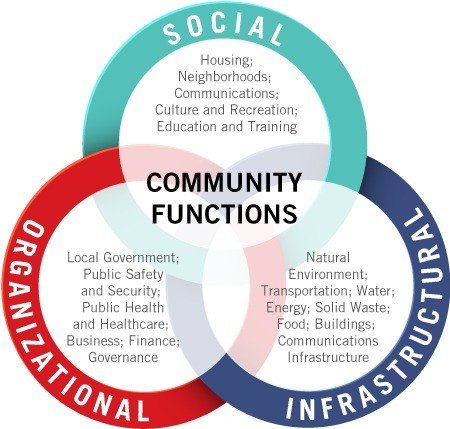
26
Feb
Building Codes, Health, Safety, and the Environment: Foundations of Resilient Hospitality
Executive Summary
This report explores the concept of resilience in the context of building codes, health and safety regulations, and environmental sustainability. It focuses particularly on how these factors interplay within the hospitality sector. The report highlights three key areas of resilience: anticipation, coping, and adapting to unexpected crises. The COVID-19 pandemic has highlighted the importance of resilience in both economic recovery and healthcare systems. It also underscores the need for environmentally sustainable practices, universal health coverage, and quality care to ensure continued growth and stability.
Introduction
Resilience refers to an organization’s ability to handle unexpected events and threats to their survival. Unlike flexibility, agility, or robustness, resilience specifically emphasizes dealing with unforeseen threats and crises. While there is no consensus on a precise definition for organizational resilience, three main perspectives can be distinguished: resistance and recovery, advancement of processes and capabilities, and anticipation.
Resilience in Economic Recovery
Economic recovery from crises such as COVID-19 requires more than just a return to ‘business as usual.’ Rather, it should focus on “building back better” to avoid environmentally destructive practices and prepare for future shocks. Current recovery measures have largely been inadequate in terms of sustainability measures. Key dimensions for a resilient economic recovery include a people-centered approach that prioritizes well-being, inclusiveness, reducing inequality, aligning with long-term emission reduction goals, slowing biodiversity loss, and increasing circularity of supply chains.
Resilience in Healthcare Systems
The pandemic has exposed vulnerabilities in our health systems globally. High-quality health systems could save over 8 million lives each year in Low- and Middle-Income Countries by preventing deaths from treatable conditions like cardiovascular disease, newborn deaths, tuberculosis, and maternal deaths. Universal health coverage can be a starting point for improving the quality of health systems by prioritizing the poor and their health needs.
Improving quality care requires system-wide action through structural reforms that act on the foundations of the system. Measuring and reporting what matters most to people — competent care, user experience, health outcomes — are crucial in transforming low-quality health systems to high-quality ones.
Building Codes and Safety Regulations
Building codes play a significant role in ensuring safety standards are met. In Georgia for example, mandatory codes that any structure built must comply with include International Building Code, International Residential Code for One- and Two-Family Dwellings, International Fire Code among others. Local governments must adopt reasonable administrative provisions to properly administer and enforce these codes.
Despite the challenges posed by limited staffing during crisis periods like the COVID-19 pandemic that cause delays in regulatory actions or inspections within required time frames, alternatives such as retaining “private professional providers” can be employed to ensure compliance.
Conclusion
Resilient organizations possess capabilities that allow them to adapt, integrate, and reconfigure resources and competencies in response to changing conditions. Through building environmentally-friendly practices into economic recovery plans after crises like COVID-19 pandemic; focusing on improving healthcare systems especially for vulnerable populations; and maintaining stringent building codes even in challenging times we can build more resilient organizations capable of handling future shocks effectively. To learn more about this and other interesting sustainable real estate topics subscribe now to the Sustainable Investing Digest for this limited time free offer: Subscribe on LinkedIn https://www.linkedin.com/build-relation/newsletter-follow?entityUrn=7053058780464345088